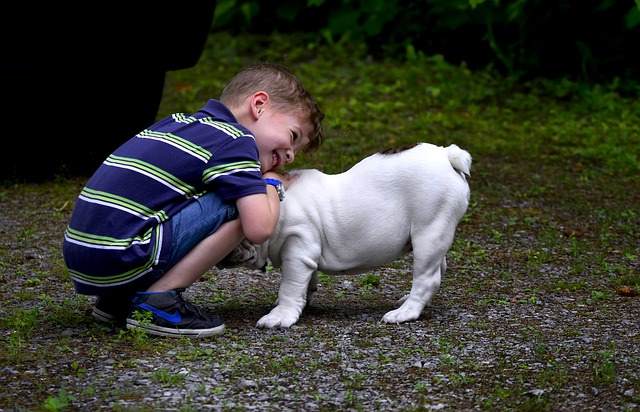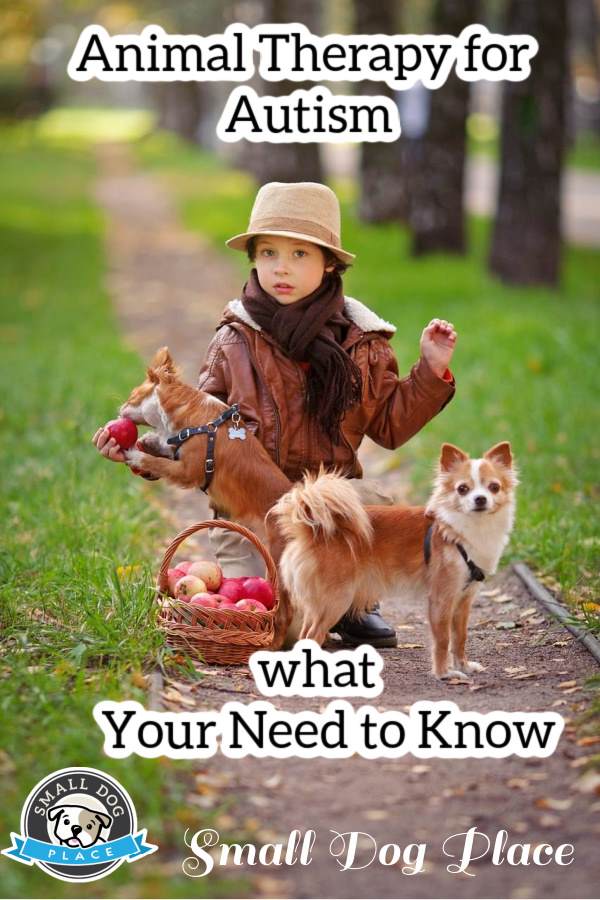- Small Dog Place Home
- Lifestyle
- Animal Therapy for Autism
Benefits of Animal Therapy For Autism
Animal Therapy for Autism By John Brooks
Over several years, animals and people have interacted beautifully. However, the psychological implications of using autism therapy dogs to help autistic individuals are new but have beautiful results. There have been several findings by caregivers and health providers that communicating with animals may help children with autism, both physically and emotionally.
 Animal Therapy for Autism
Animal Therapy for AutismAdolescents on the continuum neglect essential social skills because of struggles with peers. It is harder for them to connect around pets. It could be a perfect complement around conventional autism care for children to be around animals or have regular interactions with animals. Several reports have been reported for animal service services with autism.
Many trials and reports have demonstrated the numerous sound effects that adolescents with autism, such as puppies, may provide as they are taken in around animals such as fear relief, pressures, temperatures, and frustration. (Source)
Animal welfare care may be as easy as having a family pet in the home, or formal as horse riding or dolphin swimming lessons. Animal contact can promote children's physical growth on the continuum and strengthen their energy, agility, and motor ability.
In fact, animals have shown to be a significant influence on children's cognitive ability and on the evolution of social skills. Many people rejoice about their friendship with animals, which will make them feel more relaxed and secure.
Many animals, including puppies, cats, goats, rabbits, whales, ducks, and certain other tiny mammals, have been used to evaluate this hypothesis.
Autism Treatment with Animal Help
Treating children with autism will be a significant benefit, whether you have domestic animals or have formal interactions with animals. Both parents and physicians have several indications that engaging with animals, officially named animal-assisted therapies, will provide children with autism with physical and emotional benefits.
Dogs are known to be man's best friend, and your animal companion is always there for you in daily dealings, whether it is uplifting you from a bad day at work or helping you step out of depression. Similarly, we feel a kind of attachment and comfort in the presence of our furry friends.
When an autistic child sees that the world is so different from him, he can be overwhelmed and feel worthlessness. It'll be overcome by an animal companion who shows the same amount of affection to every human being without differentiating between healthy and suffering mentally.
Autism and Animals: What the Research Says?
Although there is much further work required to establish the results and validate the effectiveness of animal therapy for children with autism, in particular, some reports indicated this that could be beneficial.
Psychologist and scientist David Nathanson started to research in the 1970s the way encounters with dolphins influenced children with disabilities. (Source)
Nathanson discovered that it could enhance a child's interest in dolphins, develop its learning, make them learn more, and maintain knowledge longer.
In a new report in the Western Journal of Nursing Studies, the role of communicating with dogs on children with autism spectrum disorders has been discussed.
The research was performed under the guidance of a teacher. Children are introduced to a toy, a plush dog, or a live dog. The children who interacted around a live dog were moodier than the children raised to a toy or plush dog and were much more conscious of the environment. (Source)
Management in Autism Animal-Assisted Care
Speak to your child's veterinarian if you are involved in animal care with your pet. The specialist may refer to the region; there may be horse boarding, aquatic therapy, and other animal rehabilitation services.
If you are willing to promise to carry a pet home, a specifically qualified dog to interact with children with autism might be recommended. Such pets can be fantastic additions to autism kids' families and can also allow kids to stay relaxed and secure while they are away from home, such as a kindergarten.
The results of autism-assisted animal treatment are as follows:
Their contact with such creatures will be a tremendous value for children who have pets at home. They love the warmth of physical interaction with animals and continuous accompaniment to minimize isolation and therefore improve the ability to encounter other animals through animals.
Moreover, the treatment of pets facilitates an understanding of others' nature and enables the production of caring feelings.
Enhancing Abilities
Enhancing motor ability, endurance, reduced blood pressure, improved control, decreased chance of heart or stroke, and lower stress is only some of the many physical advantages of autism animal care therapy.
Aspects of Thought and Desire
Studies have found children with autism to have a stronger sense of well-being, problem-solving, motivation, and a happier frame of mind through animal therapy. This treatment tends to sustain a calm attitude, contributing to reducing autism assumptions and reducing fear and tension. It also improves leisure or relaxation abilities that lead to good health.
Aspects of Schooling
Animal therapy advantages for autism often help acquire new words, enhance memory, and develop things like scale, color, etc.
Motivational Aspect
Children are inspired by animal-assisted training to take an interest in social events, engage with others, and understand social interactions better. Animal companions will help mentally challenged people feel loved and included; to think that their presence is not useless, which will be a significant aspect of motivating them and bringing them from the thought that they possess no use in society.
Conclusion
Treatment of autism with animal companionship, as mentioned above, may be as simple as having a family pet in the home or as formal as horse riding or aquatic lessons with dolphins; all of these will play a significant role in creating face to face interactions with the animal and the autistic child.
Animal contact can help autistic children learn more emotionally and strengthen their energy, balance, and motor skills. More specifically, many people gain great happiness from their interactions with animals, improving self-reliance and well-being with autistic children.

Author Bio
John Brooks is a veterinary surgeon who manages a lot of calls for pet services while also maintaining a quality lifestyle. He has graduated in surgery and veterinary medicine in 1997 and has helped in several small animal practices until 2005 before shifting to critical care and emergency.
Dr. Brooks loves animals from the core of his heart. Whenever he gets time, he tries to write regarding animal health so that all pet lovers like you don’t fall in any hazardous situation.
Other Articles by John Brooks
Safe and Affordable Treatments For Dog Hip and Joint Pain
Dog Food Guide for Homeworking Dog Parents
Harness Train Your French Bulldog Using These 7 Quick Tips
Why Should Dogs Wear Snug Dog Collars?
Did You find this article about animal therapy for autism interesting? May we suggest...
More About Janice (author and voice behind this site)
Janice Jones has lived with dogs and cats for most of her life and worked as a veterinary technician for over a decade.
She has also been a small-breed dog breeder and rescue advocate and holds academic degrees in psychology, biology, nursing, and mental health counseling.
Her work focuses on helping dog owners make informed, responsible decisions rooted in experience, education, and compassion.
When not writing, reading, or researching dog-related topics, she likes to spend time with her six Shih Tzu dogs, her husband, and her family, as well as knitting and crocheting.
She is also the voice behind Miracle Shih Tzu and Smart-Knit-Crocheting

Free Monthly Newsletter
Sign Up for Our Free Newsletter and get our Free Gift to You.
my E-book, The Top 10 Mistakes People Make When Choosing a Dog (and how to avoid them)



